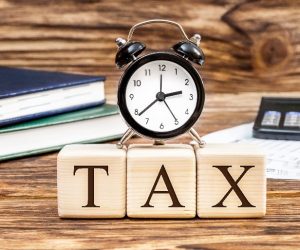It is that time again, tax season is approaching, and it can be overwhelming, especially for owner-operators. It is time to begin thinking about filing your taxes. As an owner-operator, you are considered self-employed or an independent contractor. Staying organized and understanding your tax obligations are important in maximizing deductions and minimizing stress. From tracking expenses to understanding industry write-offs, preparing for taxes does not have to be daunting. Knowing which deductions are available for owner-operators can help you get the most out of owning your own truck.
Below, we will walk you through essential tips and strategies to help you tackle the tax season with confidence. Whether you are a seasoned owner-operator or just starting out, these tips will help you stay on top of your finances and keep more of what you earn.
Stay On Top of Quarterly Tax Payments
As an owner-operator, you already have a lot of responsibility from managing loads, maintaining your truck, renewing your CDL, and more – but then you add paying quarterly taxes to that list.
Since you do not have taxes withheld from your income like company drivers, it is your responsibility to estimate and pay taxes every three months. The self-employment tax rate is 15.3%, which covers Social Security (12.4%) and Medicare (2.9%). How you calculate these payments, you can use the IRS 1040-ES Form for individuals and the Form 1120-W if you are a corporation.
A good thing to remember is to set aside 25% – 30% of your weekly net income for taxes. This can help ensure that you will have enough saved to cover your quarterly payments to avoid a higher bill at tax time.
If you miss these quarterly payments, you can face penalties. The IRS charges interest and underpayment fees for any unpaid taxes, so it’s important to stay on schedule and be consistent.
Keep Detailed Records
One way of reducing your tax bill is having excellent recordkeeping. Most work-related expenses are deductible, but you will need to ensure you can prove these expenses to claim them.
While this task is tedious, keeping every receipt for every purchase – fuel, meals, lodging, truck maintenance and even small items such as snacks, over time, these expenses begin to add up. You can sort and label your receipts by categories (food, fuel, maintenance) at the end of each haul.
Some owner-operators choose to digitalize their records with QuickBooks, Expensify, or TruckLogics. Organizing your records will not only make tax season easier but also protect you in case of an IRS audit.
Understanding Tax Deductions for Owner-Operators
As an owner-operator, understanding what expenses qualify as tax deductions can significantly impact your bottom line. Many business owners overlook legitimate deductions that can lower taxable income, so it is important to track anything related to completing your job or running your business. Here is an updated guide to common tax-deductible expenses.
- Truck Related Expenses: Depreciation, fuel, maintenance, and interest payments.
- Per Diem Allowances: The IRS allows owner-operators to deduct meals and incidental expenses for days that you have spent away from home. In 2025, the per diem rate is expected to still be about $69 per full day and $51.75 for partial days. Be sure to keep track of your per diem days by using a calendar. You can mark travel days and note departure/arrival dates so you can make this step easier.
- Tools and Equipment: snow chains, tire irons, and Auxiliary Power Units (APIs).
- Technology: computers, cell phones, internet, tablets, and GPS devices that are used for work are deductible.
- Insurance: Medical, dental, vision, business liability, and truck insurance premiums.
- Home Office: If you use a dedicated space in your home for route planning or scheduling hauls, you may qualify for this home office deduction.
Exploring Tax Credits
Tax credits can help reduce your tax liability, so do not overlook them. Some tax credits include:
- Retirement Contributions: Your contributions to Individual Retirement Accounts (IRAs) or SEP-IRAs are considered tax-deductible.
- Charitable Donations: Any donations that were made to qualifying organizations can be claimed on your taxes, however, you must provide the proper documentation for this tax credit.
Working With a Tax Professional
Filing taxes as an owner-operator can be difficult, especially if you are new to the road. A tax professional who is familiar with the trucking industry can help you find deductions and credits that you are eligible for.
Tax professionals can also help you avoid expensive mistakes, such as misreporting income or failing to properly document deductions. Having a professional on your side is a good investment to help save time, reduce stress, and minimize your tax liability.
Are You Ready to Take the Next Steps as an Owner-Operator?
Becoming an owner-operator gives you the freedom to run your business and maximize your earnings. If you are ready to take the next step, we are here to help.
At Non-Forced Dispatch, we are dedicated to providing owner-operators with the tools and resources they need to succeed. If you are ready to grow in your trucking career, contact our recruiting team at 330-484-6013 Ext. 2 or apply today!
Owner-Operator Taxes – Final Tips
If you recently became an owner-operator or are considering buying your own truck, you may want to remember a few tax deductions.
Save your fuel receipts and record the miles you drive. In addition to mileage, you can deduct toll expenses, travel expenses, parking fees, and meals while you are on the road.
The above is not the full list of tax deductions for owner-operators. However, it is important to keep track of all business transactions, even the small ones, as you may be able to claim them.
Every expense you can deduct will help bring down your taxable income. The more you can take off the taxable income, the less you will have to pay the IRS. Hiring a CPA can help you find all the deductions available to you if you keep your records straight and accurate.
Owner-Operator Tax Deduction Questions
Q: What tax forms do owner-operators need to file?
A: Owner-operators will receive a 1099-NEC form from each carrier they work with, reporting your earnings for the year. If you haul for multiple carriers, you will receive a 1099-NEC form from each one. You will then file your income using the 1040 tax form, along with Schedule C to report business income and expenses.
Q: How much money should an owner-operator set aside for business taxes?
A: It is recommended that owner-operators set aside 25% – 30% of their net income for taxes. This amount accounts for federal income taxes, self-employment taxes (covering Social Security and Medicare), and any applicable state taxes.
Q: What happens if an owner-operator does not pay their quarterly taxes?
A: Failing to pay part of quarterly taxes can result in penalties and interest charges from the IRS. These penalties include an underpayment penalty, which is calculated based on the amount owed and the length of time it remains unpaid. To avoid these penalties, make sure to estimate your quarterly taxes accurately using Form 1040-ES and submit payments on time.
Q: Do owner-operators receive a tax return?
A: Typically, no. Owner-operators usually do not receive a tax refund unless they’ve overpaid their quarterly taxes. Since taxes are not withheld automatically, it is uncommon for owner-operators to receive a significant refund. If you do receive a refund, it may show you overestimated your quarterly payments. While a refund can be exciting, it is better to fine-tune your tax estimates to keep more money in your business throughout the year.
For additional tax guidance, consult a tax professional who specializes in the trucking industry to ensure you are compliant with the current regulations and receive all eligible deductions.




 For owner-operators, the time is coming to file and pay taxes. The IRS made a statement that all owner-operators have until August...
For owner-operators, the time is coming to file and pay taxes. The IRS made a statement that all owner-operators have until August...

